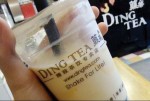Well-known café chains beat retreat from Vietnam
 |
| Some of the most iconic foreign café chains are withdrawing or scaling down operations across the country |
Below are some major chains and their progress in Vietnam
NYDC
On July 20, 2016, after finally closing the last outlet in Metropolitan in downtown Ho Chi Minh City, New York Dessert Coffee (NYDC), a European-American style coffee and desserts chain officially bid goodbye to Vietnamese customers via Facebook and promised to "come back someday."
Earlier in May, Singapore-based NYDC had closed three outlets on Nguyen Trai Street and at the Cantavil and Crescent malls in Ho Chi Minh City.
With investment from Singapore’s SUTL Group, NYDC arrived to Vietnam in 2009 and young people were quickly attracted to its modern drinks menu and tasty American desserts, such as cheesecakes and mud-pies. At its heyday, NYDC owned six outlets in Ho Chi Minh City. SUTL planned to open 20 outlets in office buildings and malls over a five-year period, with each unit costing $250,000 to $300,000.
Though NYDC and SUTL did not give a detailed explanation for the withdrawal, industry insiders believe the expensive menu and locations were among the issues. Meanwhile, Vietnamese customers were getting pickier and NYDC had to compete with Vietnamese-owned chains like Tay Nguyen, Phuc Long, The Coffee House, Urban Station, and Trung Nguyen.
Gloria Jean’s Coffees
In April, Australian-owned Gloria Jean’s Coffees decided to close its last store in Vietnam, ending a 10-year stint in Ho Chi Minh City and Hanoi due to slow expansion, high rent, and an unsuitable business model.
Entering Vietnam in 2006 via signing a franchise contract with a local firm, Gloria Jean’s Coffees expected the business results to develop as well as it did in Thailand and Malaysia.
However, the Australian coffee house chain was only able to open six outlets in Ho Chi Minh City and one in Hanoi in the first six years.
Nguyen Phi Van, the first franchisee of Gloria Jean’s Coffees in Vietnam, told Vnexpress that the demise was due to the adoption of a business model that had been developed in Australia for the local and regional markets.
Later on, even after Gloria Jean’s Coffees International allowed its franchise in Vietnam to make some changes to its products to adapt to local people’s taste, the going remained really tough due to many reasons, including fiercer competition from both foreign and domestic rivals.
Espressamente Illy
In 2009, Espressamente Illy entered into a co-operation with a Vietnamese partner called Thai Binh Duong Export-Import Co., Ltd. officially launched Coffee-Bar Espressamente Illy in Vietnam. However, after opening two outlets only, the investors went bankrupt.
The Coffee Inn
The Coffee Inn was another well-known brand since its first outlet was opened in Hanoi. The Coffee Inn is considered the first brand to bring ice-blended coffee in Vietnam for the first time.
The revenue of this chain soared in 2013-2014. However, in mid-2014, operations started to slow down due to the appearance of Starbucks as well as other brands upgrading their menus and the quality of drinks.
The business continued to fall after the throne of milk tea brands such as Ding Tea. Although The Coffee Inn changed the outlet design and added several food items to its menu, it ultimately failed to lure in customers. As of September 2016, three-fourths of the company outlets were closed.
The KAfe
Founded in 2013, Dao Chi Anh, a young lady daring to quit her high-rolling job at a big multi-national corporation in Singapore to build her own business, The KAfe was planning an overseas listing, preferably in Hong Kong or London, within two years.
The drinks and food chain was rapidly expanding with a dozen outlets in Hanoi and planned to open several stores in Ho Chi Minh City. At the time, people went to The KAfe, a café chain selling coffee and Asian-Western snacks, to enjoy the drinks and the food, check in, and take photos.
In October 2015, The KAfe received an investment capital fund of $5.5 million from Hong Kong-based private equity firm Cassia Investments. The investment was expected to help The KAfe to expand its operations. However, one year receiving the investment, Dao Chi Anh was forced to leave her business.
After her leave, the business results of The KAfe went downhill. In April 2017, the stores in Hanoi and Ho Chi Minh City were closed one after the other. The Facebook fan page of The KAfe has stopped posting updates since the end of March 2017.
Saigon Café
In June 2016, the first outlet of Saigon Café chains was launched in Ho Chi Minh City, marking the fast development of this brand in the next months. At the period of prosperity, the chain had seven outlets located in prime locations of Ho Chi Minh City. It lured in a massive volume of customers in a short time and became a favourite check-in place for the city youth.
However, only a year after debuting, the volume of outlets decreased to two from the original seven.
A representative of Saigon Café’s founders told Zing that all Saigon Café outlets are located on prime locations, however, location is not the deciding factor in a business’s effectiveness. Besides, the chain faces fierce competition from other brands as well as increasing land rental prices. Thus, the company decided to maintain the operations of two outlets with the highest revenue.
The representative added that scaling down its operations is part of the business restructuring plan.
Coffee Bene
In August 2014, Coffee Bene, a Korean coffee chain, opened its first outlet on Dong Khoi Street in Ho Chi Minh City.
It planned to open at least three outlets in Hanoi by the end of 2014 and the figure was expected to hit 300 outlets across Vietnam by 2018.
However, it later lowered the target to 100.
A co-founder of the chain commented that there are too many ‘big players’ in the market competing in the same market segment. Meanwhile, the high cost of retail rent was also a problem hindering the chain development plan.
The Vietnamese coffee market is considered very promising as it is estimated to grow at 15 per cent through 2020.
According to Kantar Worldpanel, a global expert in shopping behaviour, the Vietnamese coffee market is growing at 3 per cent in urban areas and 11 per cent in rural areas, mostly thanks to instant coffee.
An Euromonitor surveys also showed that the retail turnover of instant coffee in Vietnam is expected to grow at 18.5 per cent annually, to VND2.4-3.6 trillion ($107-160.7 million) in the 2011-2016 period.
| Franchise battle stirring up Vietnamese milk tea market The milk tea market is heating up day by day as a number of foreign giants have been opening franchise stores in Vietnam, reviving the trend that once hyped up the beverage market. |
| The boom of milk tea brands in Vietnam Following the popularity of take-away drinks, different milk tea brands are now trying to establish themselves in the minds of Vietnamese customers by investing in outlets with attractive designs and quality beverages. |
What the stars mean:
★ Poor ★ ★ Promising ★★★ Good ★★★★ Very good ★★★★★ Exceptional
Latest News
More News
- SK Innovation-led consortium wins $2.3 billion LNG project in Nghe An (February 25, 2026 | 07:56)
- THACO opens $70 million manufacturing complex in Danang (February 25, 2026 | 07:54)
- Phu Quoc International Airport expansion approved to meet rising demand (February 24, 2026 | 10:00)
- Bac Giang International Logistics Centre faces land clearance barrier (February 24, 2026 | 08:00)
- Bright prospects abound in European investment (February 19, 2026 | 20:27)
- Internal strengths attest to commitment to progress (February 19, 2026 | 20:13)
- Vietnam, New Zealand seek level-up in ties (February 19, 2026 | 18:06)
- Untapped potential in relations with Indonesia (February 19, 2026 | 17:56)
- German strengths match Vietnamese aspirations (February 19, 2026 | 17:40)
- Kim Long Motor and AOJ Suzhou enter strategic partnership (February 16, 2026 | 13:27)


















 Mobile Version
Mobile Version